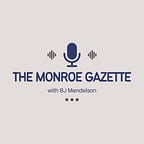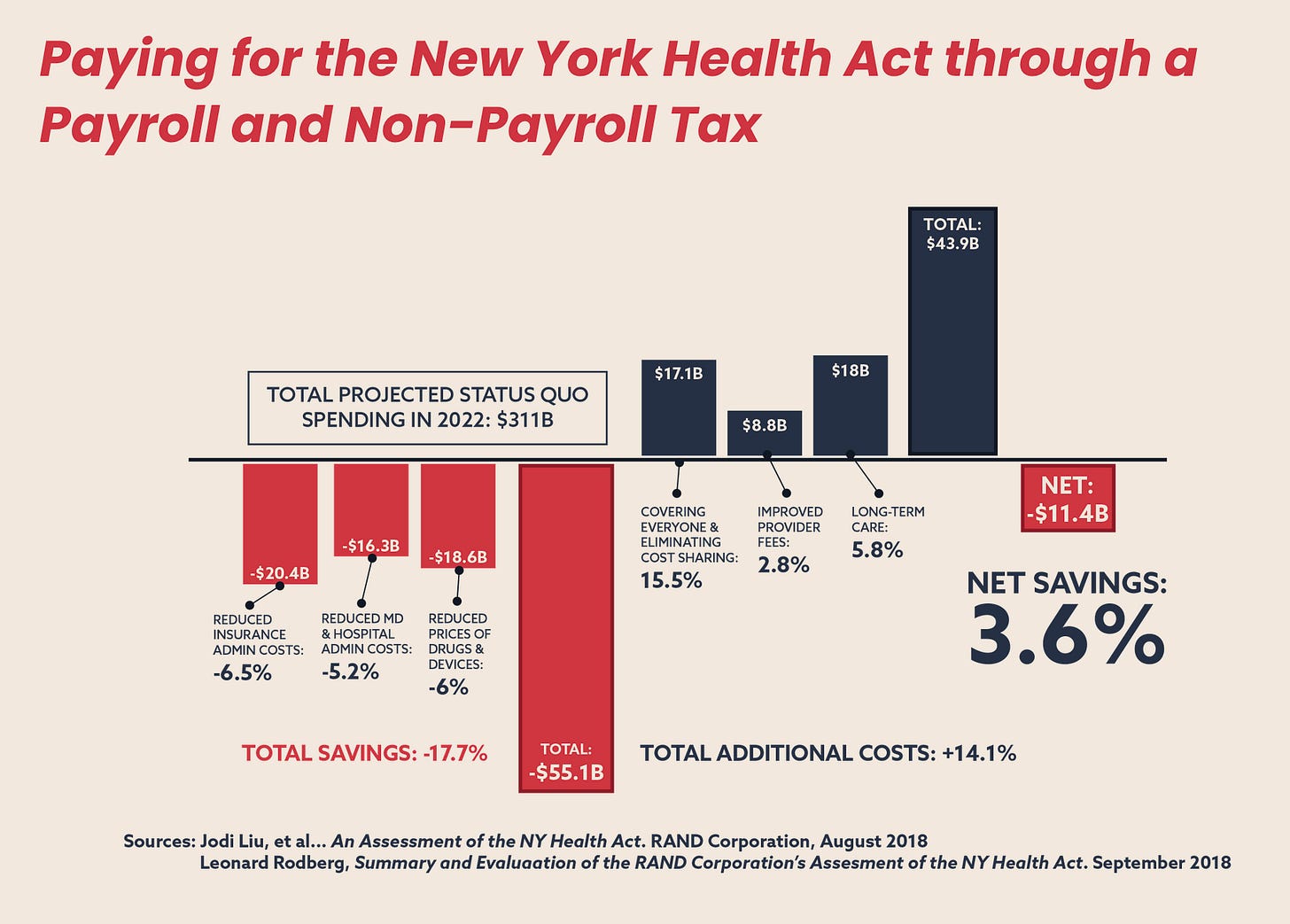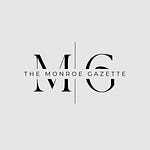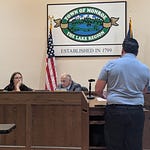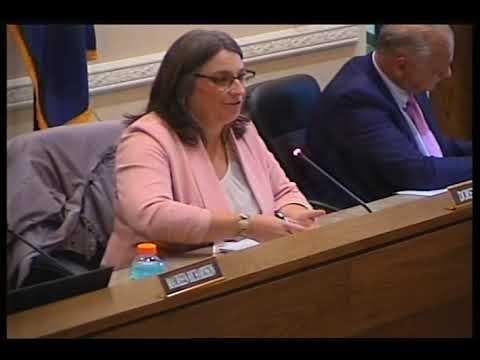We’re going to have two podcast episodes for you this week.
The first takes a closer look at the impact of the MAGA Murder Bill (“The One Big Beautiful Bill”) on New York State, and what you can do about it. This bill WILL impact you. So it’s important to understand how it’s going to raise your taxes, close local hospitals, and deny over a million New Yorker’s their health insurance.
The second podcast will cover a FOIL case going on in Newburgh, and how the police and city are doing their best to delay, bully, and obstruct it. FOIL is a big deal. It’s one of very few weapons the public has to defend themselves against local governments. Especially those that have been hijacked (see: South Blooming Grove), when government officials — like the building inspector — don’t do their job (see: Blooming Grove), or when your elected officials compulsively lie (see: The Town of Monroe and Town of Woodbury.)
So, let’s get to our first story, and if you enjoy an ad-free podcast, I’d like to remind you that these are made possible by our subscribers.
(The following transcript has been edited for brevity and clarity.)
Hello and welcome to another edition of The Monroe Gazette, coming to you from the George Carlin Memorial Podcast Studio. I’m your host, BJ Mendelson.
Well, we’re back from our vacation. And while we were away, President Trump signed the MAGA Murder Bill, making it the official law of the land. As projected by the University of Pennsylvania, the MAGA Murder Bill will cause 51,000 preventable deaths each year.
That’s 20,000 deaths per year from a loss in Medicaid and Affordable Care Act coverage.
13,000 deaths per year from delayed nursing home staffing rules.
And 18,000 deaths per year from the loss of drug coverage for people who receive both Medicare and Medicaid.
According to the Fiscal Policy Institute, there are 156 hospitals in New York State, and 70 of them face possible closure from a loss of net patient revenue from Medicaid and other government programs.
94 of those 156 hospitals would see their annual profits eroded also putting them at risk for closure.
And I want New York’s Orange County residents to pay special attention to Bon Secours Community Hospital over in Port Jervis and St. Lukes in Newburgh. Both made the list from the Fiscal Policy Institute list about the potential for closure.
*Yes. BJ’s Alarm went off while we were recording. We left it in because we thought it was funny and this topic was too serious.*
[Note: The Monroe Gazette reached out to Montefiore St. Luke's Cornwall Hospital for comment on the Fiscal Policy Institute’s list and will update this story if we hear back from them.]
From the Healthcare Education Project, the passage of the MAGA Murder Bill also creates a $13.5B hole in New York State’s budget, which could lead to the loss of services elsewhere as well as higher taxes to offset those losses.
Our hospitals will lose about $8B in total funding, and we’ll see the potential loss of 34,000 jobs.
And for those of you who get your health insurance through New York’s exchange, because of the loss of tax subsidies that are provided by the federal government, you’re looking at a potential increase of 38% or $2,700 per year for couples.
The MAGA Murder Bill also introduces a whole new set of hurdles for those of you who get your insurance through the Exchange or Medicaid.
New York State’s Department of Health breaks it down like this:
-If you are enrolled in New York State’s Essential Plan, almost half of you will lose eligibility for tax credits, and 730,000 of you may lose coverage completely.
-If you are enrolled in Medicaid, over a million people may lose their medical coverage. And the new paperwork requirements may leave almost 1.5M people without access to Medicaid.
-If you are enrolled in a Qualified Health Plan, an estimated 65,000 to 80,000 people may lose their coverage as well. 140,000 of people enrolled in this plan may also see their costs increase by 38% because of the loss of tax credits.
And 100,000 people enrolled in this plan will see their costs go up by at least five percent
So that’s the impact of the MAGA Murder Bill on New York State as a whole.
How Does The Largest Healthcare Cut in American History Impact Orange County?
Since The Monroe Gazette covers Southern Orange County, at the moment it’s difficult to get granular details. We’re working on it. But. According to New York State’s Department of Health, All of Orange County and the rest of Congressman Pat Ryan’s District (District 18) will be impacted as follows:
-38,392 will lose access to Medicaid and New York’s Essential Plan.
-The 18th Congressional District will lose over $329M in funding for Medicaid and the Essential Plan.
-The local hospitals will lose over $50M
-And the average cost of insurance through the market place will go up by $214 each month or over $2,500 for the year.
Now, listen, the MAGA Cult will tell you none of these numbers are true.
Everything is great.
President Trump said he won’t cut Medicaid, so he won’t.
And President Trump, like George Washington, is incapable of lying.
The bad news is that there’s nothing you can do for these people. They’ll either figure it out for themselves when their medical coverage disappears — or their local hospital closes — or they won’t.
And President Trump and Congressional Republicans know that.
Because if you look inside the MAGA Murder Bill, you’ll find most of these cuts don’t take place until January of 2027.
[Note to readers: We reached out to New York State’s Department of Health, given that some states plan to phase in at lease some of the changes beginning in 2026, not 2027. We will update this story with their comments if we hear back.]
This was designed for the likely outcome of Democrats taking back the House in 2026. Assuming of course, we have federal elections in 2026. I’m still convinced that we won’t.
This way, if the Democrats do take back the house, and all these hospitals start to close and medical coverage vanishes, the MAGA Cult will just blame the Democrats in 2027 and 2028, as that is when the worst impacts of the bill are projected to be felt.
It’s a nice scam that the MAGA Cult has going.
But here’s the good news. If you live in New York State, there is something you can do. Right now. And that’s pass The New York Health Act.
The New York Health Act is the State equivalent of what we talk about when we talk about Medicare for All nationally. It’s not free. You’ll still have to pay for health insurance, but you would pay through your taxes, instead of giving that money you were already spending to an insurance carrier. And in most cases, you’ll be paying less than what you’re currently giving a greedy company like United Healthcare.
You also won’t have co-pays. You won’t have deductibles, and everything is covered. Including stuff that Medicare currently does not cover, including vision, dental, and long term care.
We spoke with Melanie D’Arrigo, the Executive Director of The Campaign for New York Health about this bill and the steps you can take, right now, to get it out of committee and voted on by the legislature when they reconvene in January.
Pass The New York Health Act NOW
Melanie D'Arrigo: Sure. My name is Melanie D'Arrigo I'm the Executive Director for the Campaign for New York Health.
BJ: Can tell us a little bit about the bill? I pulled it up before we started chatting just to see if my assemblyman and state senator support it. So in our coverage area, we have two Republican assemblymen. That’s Brian Maher and Karl Brabenec And then we have one Democratic assemblyman. That’s Chris Eachus. Neither of the three Assemblymen support the New York Health Act.
And then I looked over at the Senate version of the bill. So we're represented by James G. Skoufis, who also doesn't support the bill.
So we'll get to that in just a moment.
But for people who are listening to this and are like, what is this bill? Why doesn't our assemblyman support it? I was hoping you might be able to tell us what it is.
Melanie: Yeah, absolutely. So the New York Health Act is a single payer health care bill. People can think of it as Medicare for All at the state level. This is a bill that would include medical, dental, vision, hearing, vision, prescription drugs, and long-term care. So we would have all of that coverage.
We would no longer have to spend time with insurance companies, fighting with insurance companies to get pre-approvals. We would no longer have to deal with surprise billing, high deductibles, or even co-pays, right? So this would be a, healthcare would cost nothing when we go to the doctor. And we would get all of this.
Right now, the good part and the interesting part, I mean it's all good, but the really good part that most people have a hard time wrapping their heads around is that 92% of New Yorkers would actually pay less than they currently pay for their healthcare. So we would be getting so much more and spending less money. So it is, you know, obviously it's the moral path forward, but it is also the financially sound path.
This is a bill that has so many positives. I hope you have some more questions. I could probably talk about it for five days. *laughter*
This is a bill that also would reduce property taxes. There are significant savings in many places. Having to not worry about the cost of healthcare, having to not worry about going bankrupt because of healthcare costs is something that would be incredible, and it's frankly something that the rest of the world has that we don't, you know? We are a significant outlier amongst developed nations. We're the only industrialized country in the world that does not have universal health care.
Now I will say, because I often get this question, you know obviously we would love to see universal health care happen on a federal level. But I don't think we have to look very far to understand that our federal government is in chaos. And frankly, with this reconciliation bill that they just passed, New Yorkers and many others across the country are poised to have a lot of harm sent our way.
People will lose health care. People will, everyone's going to pay more money. Hospitals will close. Hospital services will shut down. Your wait times will increase and property taxes will go up. So while the New York Health Act in any other year would be a step toward progress, now it's actually a necessity.
If our lawmakers want to prevent our taxes from going up, if they want to prevent our communities from getting sicker, if they want to prevent people from being kicked off their health insurance, if they want to prevent all of our health care costs going up and hospital closures, they need to get on this bill and they need to fight like hell to pass it.
BJ: Yeah, I mean, there's so many different questions that I want to ask.
Melanie: Yeah, I know. I could talk about the bill for five years. *laughs*
BJ: And I think it's great because, you the reason why The Monroe Gazette exists is that there's a News Desert down here And I think people just don't know about the bill. Like we have one weekly paper. Which doesn't even cover our area and just kind of recycles stuff from like Greenwood Lake and Warwick, and doesn't really cover Monroe, Woodbury, Blooming Grove, or Chester.
So that’s one reason why I wanted to chat with you and talk about the bill.
I just want to go back and highlight this real quick because we have a lot of seniors in our area, you know, I think about my Mom who needs a hearing aid and under Medicare the hearing aid is not covered. But under the New York Health Act that would be covered that. Is that right?
Melanie: Absolutely, absolutely. And it [The New York Health Act] would also cover long-term care, which no other plan covers. So this would be the most comprehensive health care plan in the state, probably the country.
BJ: And just one more point on that. I know dental also, if you have Medicare, they don't necessarily cover everything. Like they might cover a cleaning, but if you need a root canal, they don't cover that. The New York Health Act would cover dental as well.
And I know also down in the city — So, my Dad is a NYC retiree — there’s been a push to take away quality medical coverage from the retirees and push them onto a Medicare Advantage plan, which would offer significantly worse insurance at a higher cost.
And so I'm curious what's been the response to some of the retirees that you've talked to who might be in that situation when you tell them about the New York Health Act?
Melanie: I mean it's such an unfortunate situation that happening to those retirees. Those poor folks who work entire their career and were promised health care. And it's really good health care benefits. So it's been unfortunate to watch the attacks on their health care, but I will say that what we have seen at the campaign is just an outpouring of retirees getting involved with our campaign and pushing for the New York Health Act.
Because I think it might have been like the first real crack that we've seen [the attempt to push retirees onto private plans] because we folks that are on private plans we experience all kinds of hardship with [access to] health care. But a lot of these public union plans are really really good right? So when you start to see that even these plans are now in jeopardy, I think it is a canary in a coal mine moment for them. So I think that has propelled [the retirees] to learn more about the New York Health Act.
We build with a lot of groups now that are public retirees that are getting involved in our actions. And it's really, I think, helped them understand more about the bill and how it would benefit not only them, but all of us. That's been a real positive, right? Seeing that commitment. Obviously, this is a bill that you wouldn't have to worry anymore about your health care being ripped away, because you'd actually have better health care.
BJ: That's right. And in our area, you know, I think a lot about the impact of, you know, I don't call it the Big, Beautiful Bill. I call it the MAGA Murder bill*.
Melanie: That's a more accurate name.
[Note to readers: The name MAGA Murder Bill was originally coined by researcher and campaign strategist, Anat Shenker-Osorio, and we want to make sure she gets all the credit for that spot on name.]
BJ: There's going to be over a million New Yorkers who are on Medicaid. They're going to lose their coverage. I know that the bill itself says, you know, these changes don't take place until January of 2027. But if you receive Medicaid, a lot of people have already received notifications from New York State saying you can expect difficulties, you know, I'm paraphrasing, beginning next year. Also in our area, we have a hospital in Newburgh, that's going to be directly impacted by the loss of funding from the MAGA Murder bill.
So I'm curious about if, for people on Medicaid who have been displaced, you know, there's this over 1.1 million New Yorkers, what's been the effort to get the word out to them to let them know about the New York Health Act?
Melanie: I mean, we work every day to get the word out, right? And I think we have been, we have a very broad coalition comprised of grassroots organizations, C4s, C3s, labor unions, and even individual activists, right? And we work in every corner of the state. I mean, we work, you would probably not believe that we're all working 15 plus hours a day because it's such a passionate issue for us. We’re working so hard to get folks to learn more about this bill right. There’s many ways that we do that. We hold community events, we do educational event both in communities and digitally. You know we we work with different partners and we do a social media. You know there's a lot of ways we try to get the word out. We are under resourced we are underfunded like most organizations, where there isn't a big payoff for some sort of corporate interest, you know, these types of organizations tend to be underfunded. So that's where we're at. But I would say we are doing everything that we can, every day, to make sure that as many people as possible are aware of this bill. I think right now, after this murder bill has, you know, the reconciliation bill has been signed, we know that there's a lot of horror coming.
I am starting to see more cohesion and coalescing around healthcare messaging, which I think is really important. I'm hoping we'll be able to bring more folks into our coalition and reach more people that way as well. I think we have a actively engaged audience. People are listening because people are really scared about this. And so, you know, it's our job now to continue to try to reach as many people as possible. So that they understand that where the federal government has failed us, New York can step up and lead.
Now, not everyone understands the differences between their local state and federal government, right? But everyone does understand that their federal government has just caused a tremendous amount of harm to New Yorkers. So what we are trying to help New Yorkers understand is that our state government is one of our best tools that we have, if not the best tool that we have, to fight back against this rogue, harmful federal government. And our state government can step up. They can provide healthcare for all of us. They can do it in a way that costs the system less and costs 92% of New Yorkers less. But that's a, you know, it's a, it's not an easy feat, right? There's a lot of variables that we need to build on, but, you know, we're actively working to do so.
BJ: Let me ask you about costs because I read a lo in recent weeks about the New York City primary. A lot of Zohran Mamdani's proposals would need to go through the New York state government. And you have comments from the governor where she's already balking at it. Like she's already saying, I don't want to raise taxes. I don't want to lose more people to Florida. So I'm curious just to learn a bit more about what would this [The New York Health Act] would cost in order to make this operational, and then how does that impact on individual people? Because I think about like under the MAGA Murder bill in New York state, if you get health insurance through the exchange, two things are going to happen. You're going to lose more options, right? And then your premiums are going to go up 38%. So I'm curious if we were to get rid of that and have the New York Health Act, what does an individual pay? And then what does the state pay to operate it?
Melanie: Right. So there have been numerous studies on single payer. There was actually, the Rand Corporation, which is a more conservative leaning organization. They did a study in 2018, and even they found a significant savings with the New York Health Act. So these are sort of like the lowest number. So we often will go with this because we know it's likely to be a lot more in savings.
It’s helpful to understand that even conservative organizations are finding savings, and what RAND found with The New York Health Act would not only cover everyone, eliminate cost-sharing, and add all those additional services back in, but it would save $11.4B annually. And so that is determined because in the status quo health care system we have now, you have insurance administrative costs, you have administrative costs from hospitals, we have costs for drugs, and we have costs for medical devices. So all of those things. And obviously you have the insurance companies. We're paying for their advertising, we're paying for those fat CEO bonuses and salaries. Et cetera, et cetera. So our current system is not really working for people. But it's working really, really well for insurance companies.
And we as people need to understand that, you know, that's [insurance companies are] a made up construct, right? There's no reason to have insurance companies in the mix. They exist not to provide us healthcare, they exist to make a profit. And they're very, very good at making profit. The problem lies in the fact that when they are, because they are so good at making a profit, right? And when they make profit, that means that we were denied care. We didn't get the care that we needed. Because that's how they make money.
So when we remove them from the equation, that will reduce hospital administrative costs, and The New York Health Act will also reduce drug prices and medical devices because we now have the ability to negotiate for drugs and medical devices with a pool of nearly 20 million New Yorkers. So that will also significantly bring down costs. And those costs alone would save about $55 billion. But remember, I said we are also eliminating the cost sharing, right? So that means no copay and no deductible. That's gone. So that's gonna cost us a little bit more. But we, also in the New York Health Act, and this is really, I think, very important, especially if we're gonna have these conversations about hospitals closing, The New York Health Act actually improves provider fees.
So, sorry, I'm getting a little bit wonky here, but …
BJ: No, no, it’s all good.
Melanie: Say like a typical hospital, would have a, it depends where it is, but it will often have a varied, what we call a payer mix, right? They'll have some patients paying with private insurance, they'll have some patients paying with Medicaid, some with Medicare, some with no insurance at all, right? And so that, all of those, each of those components of the payer mix really impacts how stable the hospital is.
So the New York Health Act actually bumps up provider fees above Medicaid levels, above Medicare levels, so that we can stabilize these hospitals, so that our rural hospitals, our safety net hospitals can keep their doors open. I think this is going to be a critically important component. You'll probably hear us talking about that a lot more because of the effects of this bill. And remember, I also told you that the New York Health Act adds in long-term care, right?
So all of those services. We're taking some of the savings and investing back in the people. But even when we do that, we still save $11.4 billion annually minimum. Some studies have shown $20 or $40 billion saved annually, right? And so that's kind of the broad level of the system. But as I said earlier too, right, like what studies have also shown is that over 92% of New Yorkers will pay less than they do now. […] It's not that it's free, it’s part of our taxes, which are a progressive tax into the system right now. We're paying significantly less, the majority of us, then we would be paying for health care under today's system right now. If i'm making ten million dollars a year, I'm definitely paying more, but if I'm making $100,000 a year, I'm paying a lot less into the system. So that means that the majority of us are paying a lot less, and all of us are getting a lot more.
BJ: Yeah, and I think that's just an important point because I think people might say, so wait, is this free or do I pay something? But so they do pay something still, but you're going to pay less than what you're paying on the exchange right now.
Melanie: It is a sliding scale. So that's what a progressive tax does, right? You sort of pay what you sort of can afford. And honestly, it's like when I've looked at some of the extrapolations, it is so much less than most of us are currently paying. And what I don't think we realize, right, is just that sort of mental anguish and mental toll that the cost of healthcare has and the “what if” kind of weighs us down. And that is also, I think, a huge benefit here.
BJ: Yeah, absolutely. And so I want to ask just one more on that that front. So I think about if you're on Medicaid [in New York State], you receive dental coverage through a company called Liberty Dental. And Liberty Dental is notorious for just denying health care left and right. Like they'll they'll cover your cleaning, but if you need anything else, they won't cover it. So under this system, under the New York Health Act, you would be able to get that coverage you need. I think that's just important to stress to people.
Melanie: Absolutely. This is about bringing healthcare back to or between the patient and their medical team. Their medical doctors, their medical practitioners. We do not need insurance companies telling us what we can and cannot have, right? When we know that their motive is that they're making money when they deny us care.
BJ: That's right. So my last question, it's a bit of a two-parter. I touched on it a little bit first with Governor Hochul, where she's already kind of saying she doesn't want to raise taxes and it seems like...
Melanie: Oh, right.
BJ: So what can people do if they're listening to this interview and they want to call the governor's office? What are the steps that they can take to say to her, no, we want you to raise the taxes because we would actually get quality health care coverage for everybody and avoid all these hospital closures?
Melanie: I think she just needs to hear from people, right? And I think legislators need to hear from people, whether they sponsor the bill or they do not sponsor the bill. They need to hear from their constituents. That is the power that we have as residents of the state of New York. Those are our elected representatives, right? They work for us. So they need to hear from us. When they don't hear from their constituents, it's really hard sometimes for them to to go out and and champion something if they're not quite sure how that constituents are feeling. So we need everybody calling their representatives, [Assembly Speaker Carl] Heastie, [Senate Majority Leader] Andrea Stewart-Cousins, and the governor as well, and you know that i think there's a lot of political … What I refer to as political nonsense happening right, but we gotta remember Governor Hochul didn't support free meals for kids either for years. And then they kept pushing and pushing and pushing and assembly member Jessica Gonzalez-Rojas was so relentless. And then we got that through. And then in her State of the State, Kathy Hochul touted it as one of her achievements.
So I think Governor Hochul is someone that can move on issues. I think she's cautious, but she can move, right? And I think this is a moment, as I mentioned earlier, where we're not asking them for progress. We're asking them to protect us. And only they have the power to do that.
They absolutely have the power to do that. And this bill is really a no-brainer in the sense that everybody is covered, nobody's left behind, and the majority of us pay less, right? And like this bill that has just been, [The MAGA Murder Bill] that has just been passed, it is a danger to all of us. It is not only coming for one specific demographic or one part of the population, it is coming for all of us.
So we all need to unite and fight back. And we need to talk with our legislators and ask them to sponsor the bill. If they don't, if they're not current sponsors, if they are current sponsors, we need them to champion the bill. We need them to talk to their leadership. We need the governor, you know, we need people reaching out to the governor. This is a moment where people are terrified and rightfully so.
And it's a question of not how, like, because we know how. It's a question of if New York will step up and lead. And I think those of us that are in the organizing world and in the organizing business, we're also in the business of optimism. While it might take some work, we have to believe that our state legislature can step up and fight back for us and protect our health care.
BJ: Absolutely and you know the studies from Yale University and University of Pennsylvania said that the MAGA Murder Bill will cause the deaths of about 51,000 people a year once it's become fully implemented. So, The last point is I just want to know like where's the bill currently? Is it is it in a committee right now? And if so, how do we move it out of the committee? You know, if it's not a committee could people, call Hochul, or in our area, James Skoufis, and Chris Eachus and Brian Maher and Karl Brabenec and say, “we want an emergency session. Pass it right now.” Like what is the option that we have?
Melanie: Yeah, so right now, I mean, it's an active bill. It has not moved out of the health committee and either the assembly or the state senate. And so we need them to do that.
And I think there's several ways. I think yes, you should call your legislators. Absolutely. Call your state assembly member, call your state senator, call the governor, she needs to hear from the people of New York, she needs to hear what we want.
And I think also calling the leadership and letting them know. Speaker Carl Heastie in the assembly and Senate Majority Leader Andrea Stewart Cousins, they are the leaders.
Call them and speak with their staff and tell them how you feel. Tell them how this is going to affect you. Tell them why you want the New York Health Act. Always be polite to the staff. They work really hard. I know this is an emotional topic.
I do urge you to be polite, but yes speak to them. They need to hear from people. If we don't call, if we don't reach out, it gives them every reason to not act, right? And that's just not an option. Like we're not willing to let our neighbors be harmed. We're not willing to just sit idly by while the federal government just rips away our healthcare when we know that our state government can fight back and protect us.
BJ: Absolutely. Is there anything that I didn't ask you that you think people should know?
Melanie: You know, the one thing I wanted to mention that we didn't touch on earlier because it comes up a lot, I think your first question when you were talking about Medicare and I think you brought the example of a root canal, right? So something that I really want to stress that's very important is that Medicare does not go away. You don't lose your Medicare [under the New York Health Act.] You don't lose your Medicare. This is something that you've earned, right? The way the New York Health Act works is that it kind of wraps around [Medicare] and you get the full services of the New York Health Act.
But let's say someone moved out of state or whatever the case may be. I just want people to know that Medicare is yours. It stays with you. You never, ever lose it. That is a question that we get sometimes.
The last piece that I would just mention is on the financials, right? We talked about all these negative effects from the federal murder bill, as you termed it, right? Which I think is an accurate term, We're facing the biggest Medicaid cuts in history. So I think the estimates are that about 1.5 million New Yorkers will be removed from Medicaid.
We know we will see hospital closures We know we will see services shut down and that could look like the maternity wing is gone. Now you have to travel three counties to have a baby. What that looks like in practice are ER wait times are going up. We know that cost will go up for everybody. This is the effect of this bill, right? So we know that that was happening, but they're also doing some other like trickery. You know, they're giving us the state and local governments less funding for Medicaid. So that means property taxes are also going to go up because of this bill.
So when I say that the New York Health Act is the perfect counterbalance, it really is. Because on the flip of it now, we've got a state government who can make sure we're all covered, lower costs and lower property taxes. It's really such a winner of a bill and I really encourage your readership to reach out to their state representative and and keep reaching out. Don't just do it once. Keep reaching out every week. “Hey I wanted to check.” “Hey, I spoke with you last week i'm calling back my weekly check-in. Where are we at? Can I have an update?” that's the kind of nudging they need to do.
They [elected officials] got a lot of their plate and this is an instance where people are really encouraged to be a pest. We want to be as relentless as possible because sometimes, look, we've got legislators who really do mean well and really are engaged, but there's a million other things flying across their desk as well, right?
But it's very hard to ignore an engaged constituency and most representatives would never do that. So that's a way we can really stay on them to push them to move this bill.
BJ: Absolutely and for the people who are upset about the MAGA Murder Bill and want to support you and support the organization where can they find you. Where can they participate?
Melanie: Absolutely. So they can go to nyhcampaign.org. They can sign up to get involved with the campaign. They can obviously make a donation to help support us. We are building regional hubs around the state. We've got several in working order right now, but we are actively building more. So we need more and more grassroots folks to come in and help us spread this message and help us make sure that the New York Health Act becomes synonymous with Medicare for all. Most residents know what Medicare for All, but not enough of them know there is also a state based bill that would do such good.
Note to readers: We asked Melanie to provide some additional information on how the MAGA Murder bill will raise their property taxes here in New York and she told us:
New York requires counties (and NYC) to cover a portion of Medicaid expenses. The reconciliation bill is very likely to lead to increased property taxes in New York because of the changes to the FMAP (Federal Medical Assistance Percentage) and how Medicaid is structured in the state. If NY state stops passing along enhanced FMAP dollars, which it already began doing, counties lose that federal aid.
Since counties can’t print money or run deficits, they fund their Medicaid share mostly through property taxes. When federal and state support drops, the only way to cover the gap is to raise local property taxes or cut services.
Like today’s episode of the podcast? Want more advertising free episodes? You can become a subscribe of The Monroe Gazette by clicking below.

